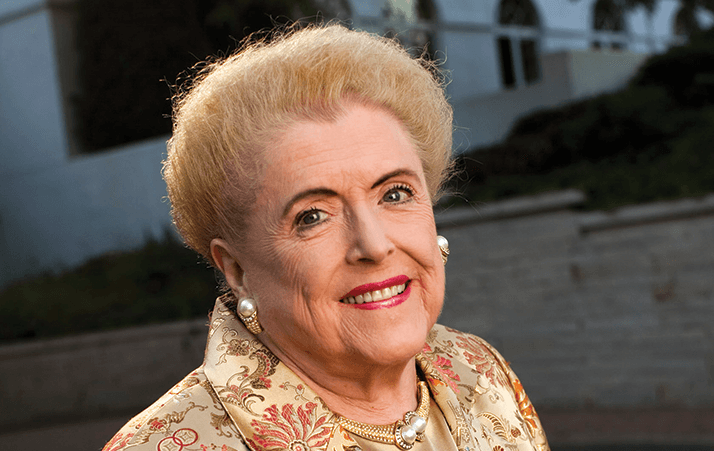
What was it that led you to study medicine? In high school I quickly discovered that my favorite subjects were math, science and biology; combine this with the memories from my childhood of hearing about several relatives who died from surgery. Somehow this bizarre combination of interests & experience led me to decide on a career of medicine at age 13, and I have never deviated from this decision.
At that stage, was it unusual for girls to go into medicine? In that time girls would go into medicine but in very small numbers, with many of them not finishing. My family wanted me to have an education, but felt if I went into medicine I would be getting married and not finish. I was goal-orientated, and I’d made up my mind that I was going to get my MD.
Why did you choose ophthalmology? For medical ophthalmology, so broad and interesting because it treats patients of all ages, sexes, and color with all diseases. Regarding ophthalmic surgery – a clean, delicate surgery that can restore sight – there is nothing better than this. And what caused you to specialize in the retina? It didn’t take long to see that the one case that the ophthalmologists at that time failed on was retinal detachment; cure rates were very low, maybe thirty or forty percent. I realized I needed better training so I sought training from Charles Schepens, the Father of Modern Retina Surgery, located in Boston, Mass. I was told that he’d never take a woman applicant but, fortunately, I still wrote him, giving him my credentials. He answered back and I became the first woman who spent a full year with him. Prior to that, his institute took people for three months of fellowship, but he requested me to take a full year.
Charles Schepens is a legend. What was it like to work with him? It was a joy, because he opened up the whole new world of retinal detachment. His cure rate was so high compared to the rest of the world – he had developed indirect ophthalmoscopy, the surgical techniques, even his own instruments by the time that I worked with him, and it was an honor to see a man like that work and get success. He was willing to describe all his techniques and he loved to teach. His techniques made a huge, unbelievable, difference: cure rates jumped from as low as 30 to 93 percent because of Dr. Schepens. Was that what inspired you to form the Retina Research Foundation? Dr. Schepens followed the principles of Gonin, and imparted this axiom to me: only through clinical and basic science research can you get the information and the tools you need to improve your patient care. I decided to help support and sponsor research, but I did not want a building nor did I want for the scientists to be working for me. I chose to accomplish research through sponsorship and collaboration with organizations. A research foundation without government interference, entirely funded by private donations, and devoted to basic research was established: Retina Research Foundation. It didn’t matter where in the world the researchers were – as long as they were getting results with basic science, we would try to provide funding. We started that in 1969, and it’s being going on for 45 years. To date we have contributed to research in 115 departments or institutes around the world.
Is there a typical day for you? Well, I’m very lucky, at present I choose my hours. I’ve never been a 9-to-5 person. Between time in the clinic and time in the office, I usually work 10-hour days 5 days a week. Every other week I screen about 100 patients a day in a low-income community in Texas, where we try to identify the more serious cases that need surgery. This keeps me active in ophthalmology, but my hobby and calling is Retina Research Foundation, to which I devote at least several full days every week. Dedicated to my patients, but also dedicated to the research that will help all patients. Congratulations on winning the Gonin medal. What does the award mean to you? The award was such an unexpected surprise. It took me a while to settle down and really believe it was true. Being selected for this high honor is the highlight of my lifetime, and I am humbled and awed to become part of ophthalmic history.
